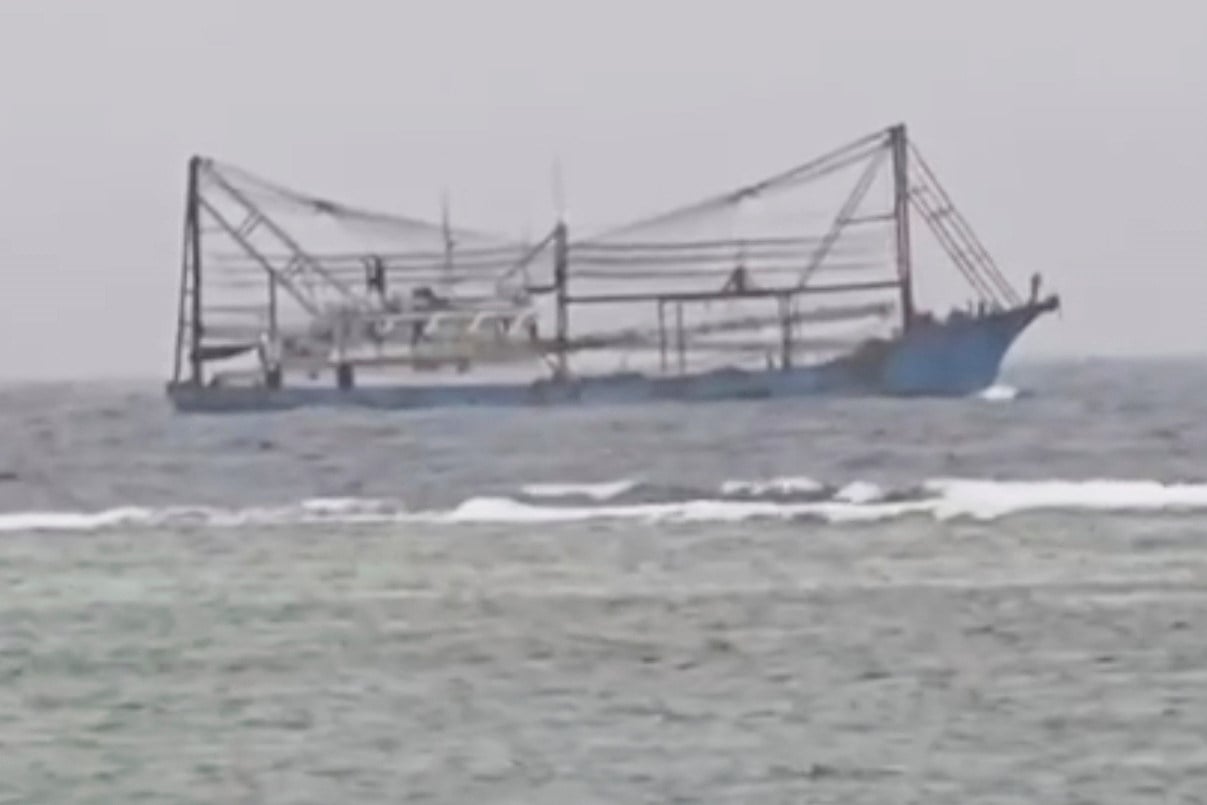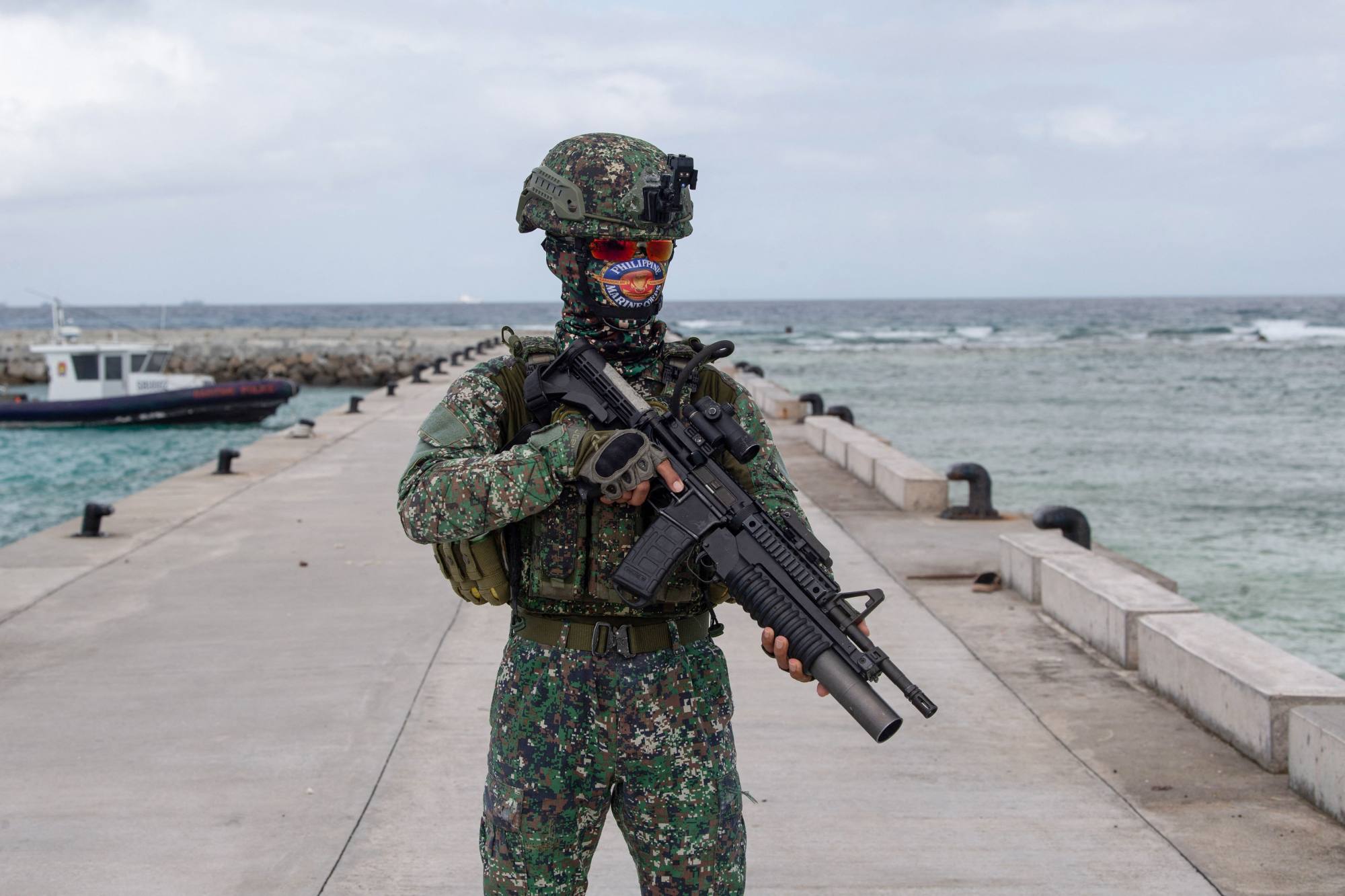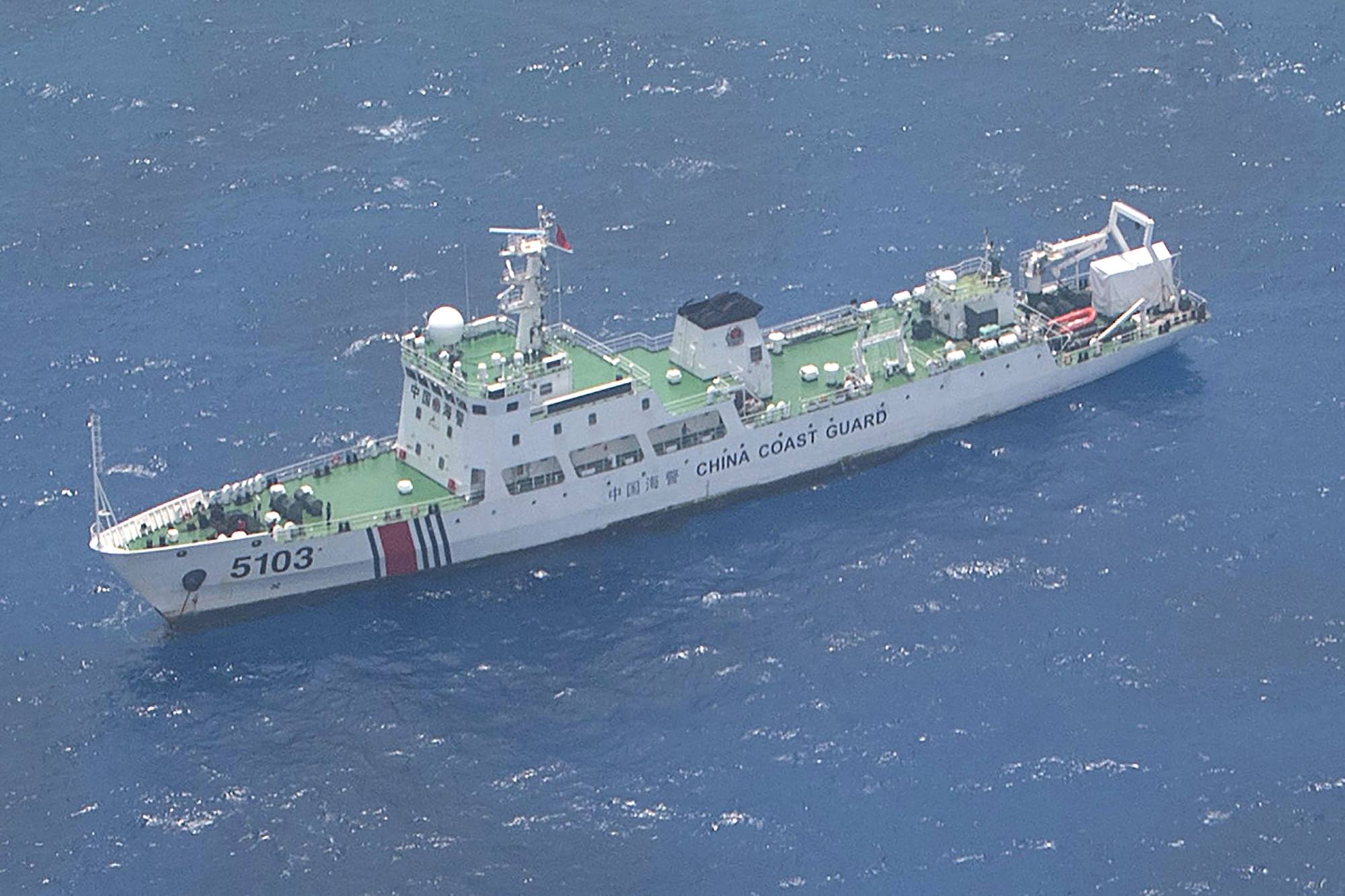Chinese vessel grounding: concern in Philippines over new grey-zone tactic
Experts say China could be ‘testing’ the Philippines’ operational response amid mounting pressure over Manila’s recent defence partnerships

A recent case of a Chinese militia vessel running aground on a strategic island in the disputed South China Sea has raised concerns from the Philippine side of another wave of so-called grey-zone activities by Beijing, even as Manila’s officials acknowledge the incident could be down to inclement weather.
Observers point to the Philippines having adopted the same strategy to stake claim over the Second Thomas Shoal when it permanently grounded the war vessel BRP Sierra Madre in 1999.
The recent incident involving a Chinese maritime militia vessel with bow number 16838 happened on June 7, just one nautical mile from Pagasa Island (Thitu Island), the largest land mass in the Philippine-claimed Kalayaan Island Group within the Spratly Islands, located 528km (328 miles) from the western island province of Palawan.
Commodore Jay Tarriela, Philippine coastguard spokesman, in a social media post on Monday said the ship was likely to have been driven into the shallow area due to adverse sea conditions whipping up waves of up to three metres (9.8 feet) amid strong winds.
According to Tarriela, Philippine personnel had tried to reach out to the crew of the stranded vessel and render support to prevent reef damage, but the Chinese side “did not respond” and eventually freed themselves after three hours.
The incident happened more than a week after US Defence Secretary Pete Hegseth warned of a China threat in the region at the Shangri-La Dialogue, a major security summit in Singapore.
Beijing and Manila have been locked in a long-standing territorial row in the South China Sea, with clashes involving vessel ramming and the firing of water cannons.
Philippine Navy spokesman for the West Philippine Sea Rear Admiral Roy Vincent Trinidad on Tuesday told reporters his side had “appropriate contingency measures” in place should Chinese maritime forces deliberately ground their ships, stressing also that “we do not deal with speculation”.
‘They will try to antagonise’
Observers, however, addressed suspicions the stranding was intentional, pointing to China feeling mounting pressure amid the Philippines’ momentum on defence partnerships.
Chester Cabalza, president of the Manila-based think tank International Development and Security Cooperation, pointed out that Thitu Island was one of the Manila’s most prized possessions.
“They will try to antagonise Filipino soldiers in the biggest land mass to see how they will react,” Cabalza told This Week in Asia.
Arnaud Leveau, an assistant professor of geopolitics at Paris Dauphine University, shared the same view, arguing the incident aligned with Beijing’s established grey-zone strategy in the South China Sea.
The strategy, according to him, involves the calculated use of civilian or paramilitary assets – such as fishing boats, maritime militias and coastguard vessels – to assert territorial claims, all while avoiding the escalation into armed conflict.
“By grounding a vessel in close proximity to a Philippine-occupied island, China could be attempting to test the response from the Philippines and its allies, while maintaining plausible deniability,” he told This Week in Asia.

Rej Torrecampo, a security analyst at think tank group Political Economic Elemental Researchers and Strategists, said the incident could be a new grey-zone tactic and a first instance of Beijing “testing” the waters.
“If the grounding was intentional, we could interpret it as, one, China trying to probe the response of the Philippines [and] understanding how the Philippines will react operationally. And two, China could be sending a message to the Philippines that it can replicate the strategies of the Philippines,” Torrecampo noted.
In 1999, Manila deliberately grounded the BRP Sierra Madre, a World War II vessel, on the Second Thomas Shoal as part of its efforts to assert its territorial claims in the disputed waters.
While the grounding of the Chinese maritime militia vessel would be a highly symbolic and provocative act if intentional, Leveau said it could be seen as a calculated move to assert China’s presence and reinforce its claims over the Spratly Islands, especially in areas where the Philippines had established a level of effective control.
“From a geopolitical standpoint, this would signal that Beijing is willing to escalate grey-zone activities, using non-military but state-affiliated assets to challenge the Philippines’ administrative control in the Kalayaan Island Group,” Leveau said.
“It would be a direct message aimed not only at the Philippines, but also at other claimant states and external actors such as the United States, Japan and the European Union: that China intends to shape realities on the ground [or sea] through de facto occupation, rather than through legal or diplomatic processes.”

There has been no official statement from the Chinese embassy in Manila, though previously Beijing had declared indisputable sovereignty over the Spratly Islands.
Torrecampo suggested Manila should adopt a preventive strategy such as strengthening intelligence capabilities, enabling it to predict any future actions by China including the permanent grounding of vessels.
Contrary to other experts’ views, Sherwin Ona, a visiting fellow at Taiwan’s Institute for National Defence and Security Research, said intentional grounding was far-fetched since Beijing had a sustained presence in the area, especially through converted military bases.
“If there is such a move, a grounding can have environmental and legal repercussions. The Philippines can use such incidents to file an environmental case or even a violation of Unclos if proven to be intentional,” Ona said.
“Militia ships are also espionage vessels, so I think intelligence-gathering is another possibility. In addition, that’s the reason why the Philippines must push for a binding code of conduct. Precisely to avoid these incidents,” said Ona, who is also associate professor of political science at De La Salle University in Manila.